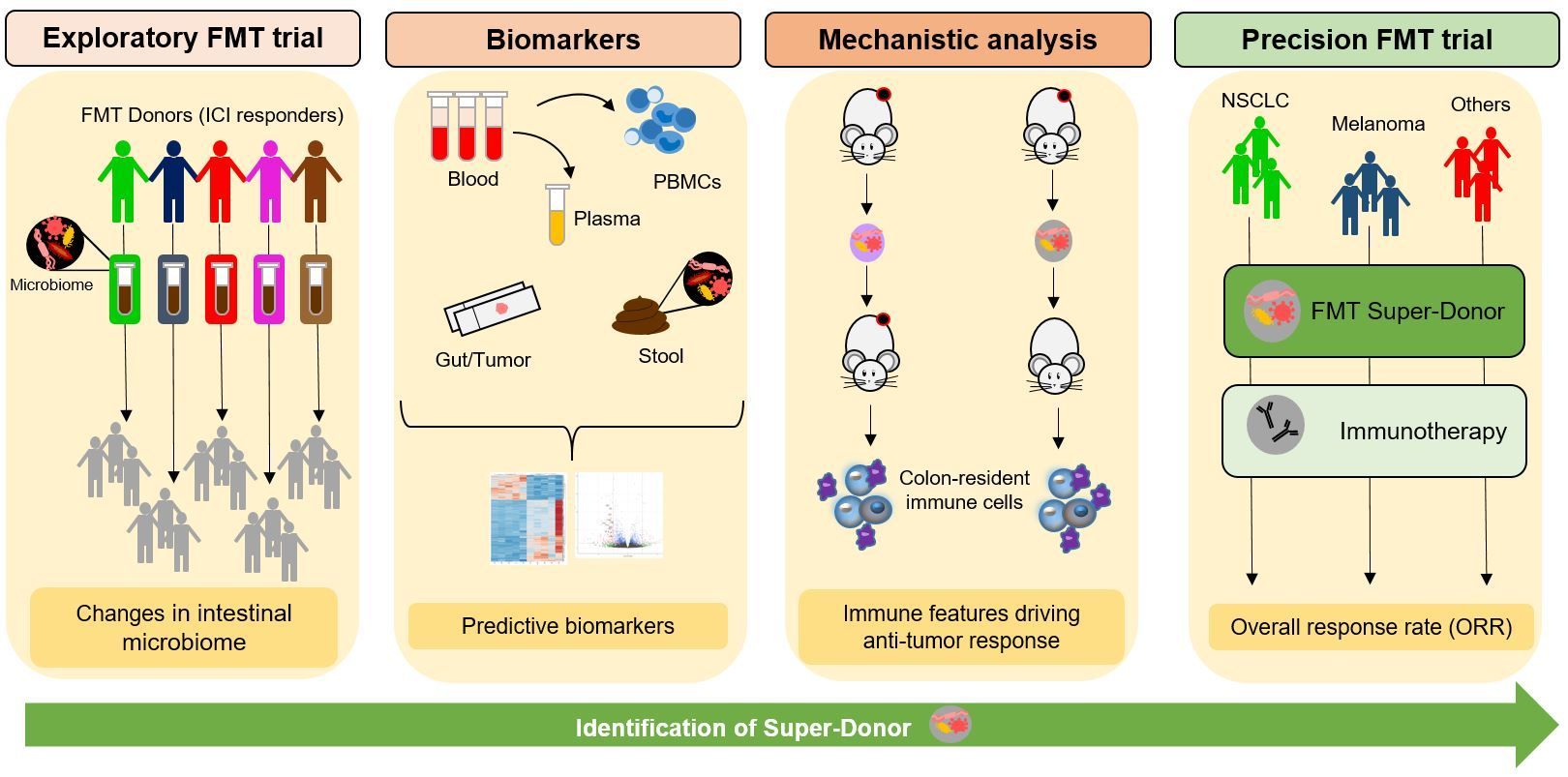Keywords
Cancer, Microbiome, Immunotherapy, Precision Oncology
Project Overview
Despite the success of cancer immunotherapies, many patients still die of cancer. A plethora of data indicates that the microbiome critically modulates cancer development, cancer immune responses, therapy responses and thus, ultimately patient outcomes. Our recent efforts in Zürich have enabled us to leverage the microbiome as a biomarker and therapeutic target, as well as to combine high-resolution multi-omics platforms and medical bioinformatics to optimize patient care towards precision oncology.
We anticipate that the microbiome has the potential to revolutionize cancer care by serving as a novel therapeutic target. The overarching goal of our consortium is to unlock the power of the microbiome in oncologic patient care by implementing the following 4 project phases:
- Exploratory FMT trial: Assess the efficacy of fecal microbiota transplantation (FMT) as a therapeutic approach in solid cancer patients resistant to cancer immunotherapy and thus turn them into responders within a prospective, interventional clinical trial.
- Biomarkers: Leverage our existing multi-omics and bioinformatics pipelines by using already available as well as prospectively collected biosamples and clinical data to identify biomarkers, therapeutic targets, and FMT super-donor characteristics for improving personalized treatments.
- Mechanistic Analysis: Functionally characterize super-donors through a detailed mechanistic understanding of the interactions between microbiome, immune, and cancer cells and evaluate the molecular impact of the identified biomarkers and therapeutic targets in preclinical cancer models, with a special focus on eosinophils and their secreted effectors.
- Precision FMT trial: Perform a new, refined interventional precision oncology trial, based on the knowledge gained by applying Precision-FMT on biomarker-driven recipient-super-donor matching and thereby determine the most effective and safe microbiome-based therapy for a given individual or population.
Our interventional clinical trials will provide immediate translation into clinical practice, and thus directly benefit cancer patients. Our project connects basic and translational research environments with oncologic patient care and invests in the interdisciplinary combination of computational power, detailed clinical patient characterization, and high-resolution multi-omics data in a clinical setting. Our aim is to unlock the potential of the microbiome as a therapeutic target, overcome existing limitations in cancer therapy, and establish a new therapeutic concept to foster precision oncology.



